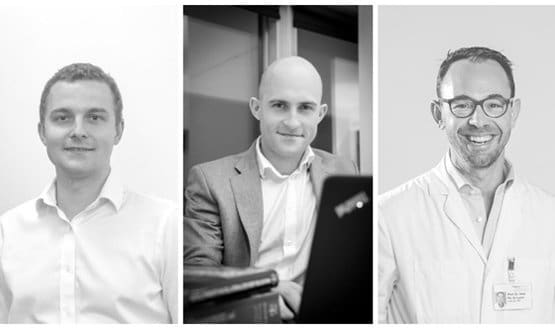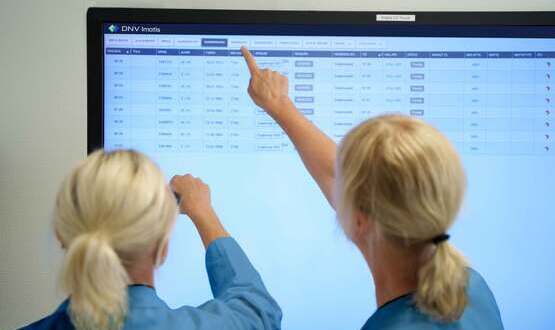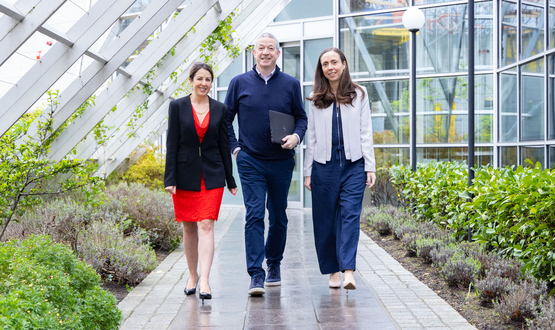Trustedoctor allows brain tumour patients access to world leading doctors

During the time Grzegorz Jarzabek’s mother was diagnosed with pancreatic cancer he spent a lot of time, money and emotional energy trying to find the right care for her.
Frustrated by the lack of cancer information online and without a reliable way to know if he was getting the right advice, he decided to create a unique platform to address the problem.
Together with Lukasz Rzeczkowski and doctor Philippe Schucht, they developed a virtual platform called Trustedoctor.
Working with the NHS and hospitals across Europe, the trio created a flexible virtual platform for patient-doctor interactions to improve efficiency and accessibility to consultations and follow-ups.
This was an area Jarzabek struggled with while caring for his mother who lived in Poland during the time of her battle.
“The idea came off the back of Jarzabek’s journey as a caregiver for his mother who sadly passed away in 2011. We realised a lot of pain points along the way, a lot of problems seeking the information we needed and that was when we created Trusteddoctor”, Rzeczkowski said.
The platform officially launched today (14 August). It is supported by 15 world-leading cancer charities including two UK charities; The Brain Tumour Charity and brainstrust.
“We developed the tool and solutions in conjunction with the charities as well as with patient organisations and patient survivors”, Rzeczkowski said.
How it works is that patients search Trustedoctor for free to identify a specialist according to cancer type, specific tumour, type of treatment or geography.
It then creates a secure digital profile where they can upload medical records, scans, photos, comprehensive doctor profiles and so on.
[themify_box icon=”info” color=”gray”]
Trustedoctor back story:
- Idea was conceptualised two and a half years ago
- Developed a prototype and pitched the idea to oncologists at Harvard Business School
- That’s where they found their chief medical officer and brain surgeon, Philippe Schucht
- During the time of developing the tool they went to Europe, got 15 endorsements from renowned patient organisations and got feedback from leading doctors and cancer survivors who helped shape Trusteddoctor
[/themify_box]
From there they can request a consultation with their chosen doctor. The doctor can review all the information in one place in their own time and either accept the consultation or refer the patient onto another specialist.
The platform also allows for doctor to doctor communication. “We realised that in a world of complex diseases doctors don’t work alone, they work in teams and work internationally to consult on clinical trials so our technology can be adopted to cater to this need”, Rzeczkowski said.
According to The Brain Tumour Charity more than 11,000 people are diagnosed each year with a primary brain tumour in the UK – that’s 30 people every day.
Determined to break down the barriers of time, geography, and the fragmented global health landscape, Trustedoctor’s vision is to revolutionise access to the leading expert knowledge by creating an online community of world-leading cancer specialists and patients across the globe.

Will Jones, chief executive of brainstrust agrees it has a valuable role to play in breaking down barriers to accessing new and different ways of treating brain tumours, “regardless of where the patient lives in the world or how much money they have in the bank.”
There are 28 world leading specialists helping brain tumour patients around the world through Trustedoctor, including UK neurosurgeons Paul Grundy – Southampton, Colin Watts – Cambridge, Michael Jenkinson – Liverpool, and consultant neurologist Jeremy Rees – London.
“Even for rare brain tumours, it’s important that a patient is treated by a specialist who is highly familiar with that particular tumour. Specialists use healthcare resources more efficiently, and most importantly, provide patients with the best outcomes for their particular brain tumour”, Grundy, neuro-oncology lead surgeon, University Hospital Southampton and Spire Southampton Hospital, said.
All specialists recommended by Trustedoctor are independent and peer-selected, recognised as leading experts in their field.
[themify_box icon=”info” color=”gray”]
Download details:
- For patients (secured cloud) – https://trustedoctor.com/patient-link
- For doctors – https://trustedoctor.com/doctor-link
- Main search on https://trustedoctor.com
- Blog: https://blog.trustedoctor.com/
[/themify_box]





5 Comments
Hi Gavin,
Please contact with us via trustedoctor.com
Hi there ,
My son is 18 next month and he has a cyst on the pineal gland which we believe is blocking his development. 5 yrs ago he could communicate and interact and was always smiling. Now he is virtually mute, makes no eye contact and seldom smiles. He has an MRI in Indonesia and the Neurosurgeon said it should be removed urgently. We are now back in uk and all the neurosurgeons say it’s not a problem.
I say it is and I live with Matt 24/7 and have seen a total deterioration in most areas over the last 5 yrs; and it’s getting worse. Can you help??? Please
Gavin Wilson
15 AUGUST 2017 @ 16:43
Hi there ,
My son is 18 next month and he has a cyst on the pineal gland which we believe is blocking his development. 5 yrs ago he could communicate and interact and was always smiling. Now he is virtually mute, makes no eye contact and seldom smiles. He has an MRI in Indonesia and the Neurosurgeon said it should be removed urgently. We are now back in uk and all the neurosurgeons say it’s not a problem.
I say it is and I live with Matt 24/7 and have seen a total deterioration in most areas over the last 5 yrs; and it’s getting worse. Can you help??? Please
Hi Elaine,
Please refer to the below links:
For patients (secured cloud) – https://trustedoctor.com/patient-link
For doctors – https://trustedoctor.com/doctor-link
Main search on https://trustedoctor.com
Blog: https://blog.trustedoctor.com/
Hi can you advise me how and where to download the tool.
Many thanks
Comments are closed.